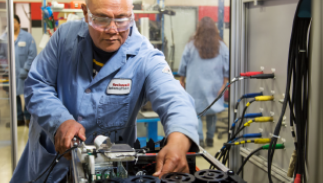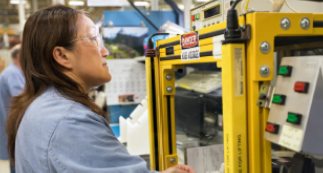As defined by the Remanufacturing Industries Council, remanufacturing is a comprehensive and rigorous industrial process by which a previously sold, used, worn, or non-functional product is returned to a “like-new” condition, from both a quality and performance perspective, through a controlled, reproducible and sustainable process.
Not only does remanufacturing provide a cost productivity option for customers, it’s also good for the environment and supports the circular economy. It’s estimated remanufacturing saves, on average, 85% of energy, water, and material use compared to a newly manufactured product, according to The Association for Sustainable Manufacturing.
Rockwell’s global remanufacturing program uses the same high-quality parts, standards, and specifications as the original manufacturing process. Further, the company goes beyond just replacing components that have failed. Rockwell also provides firmware updates, proactively upgrades some components that have yet to fail, and tests them just like new products.
Learn more about Rockwell Automation’s remanufacturing capabilities and how the company helps manufacturers worldwide meet sustainable production goals.
Published September 15, 2021

